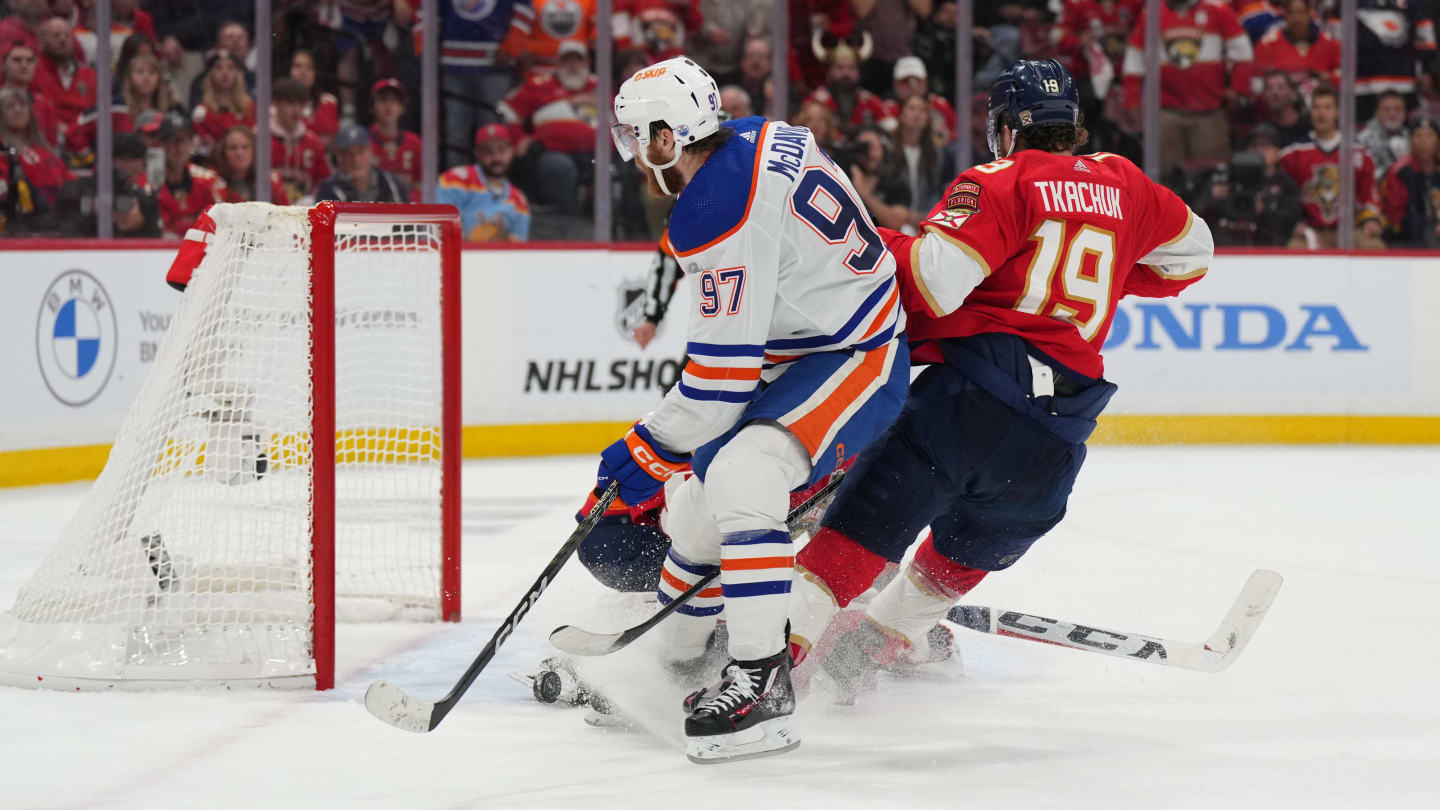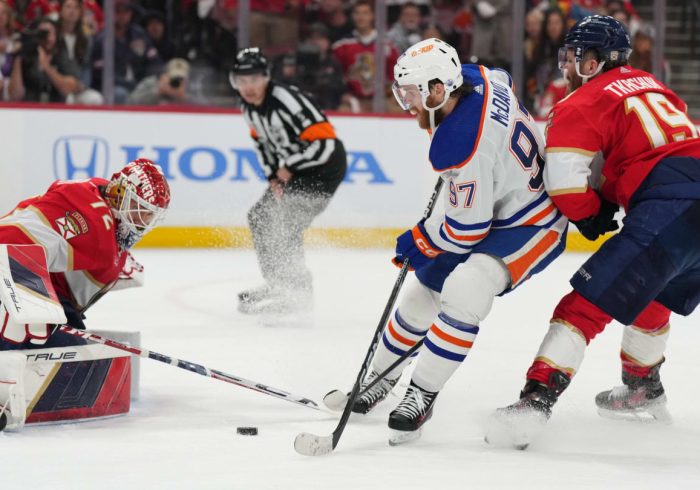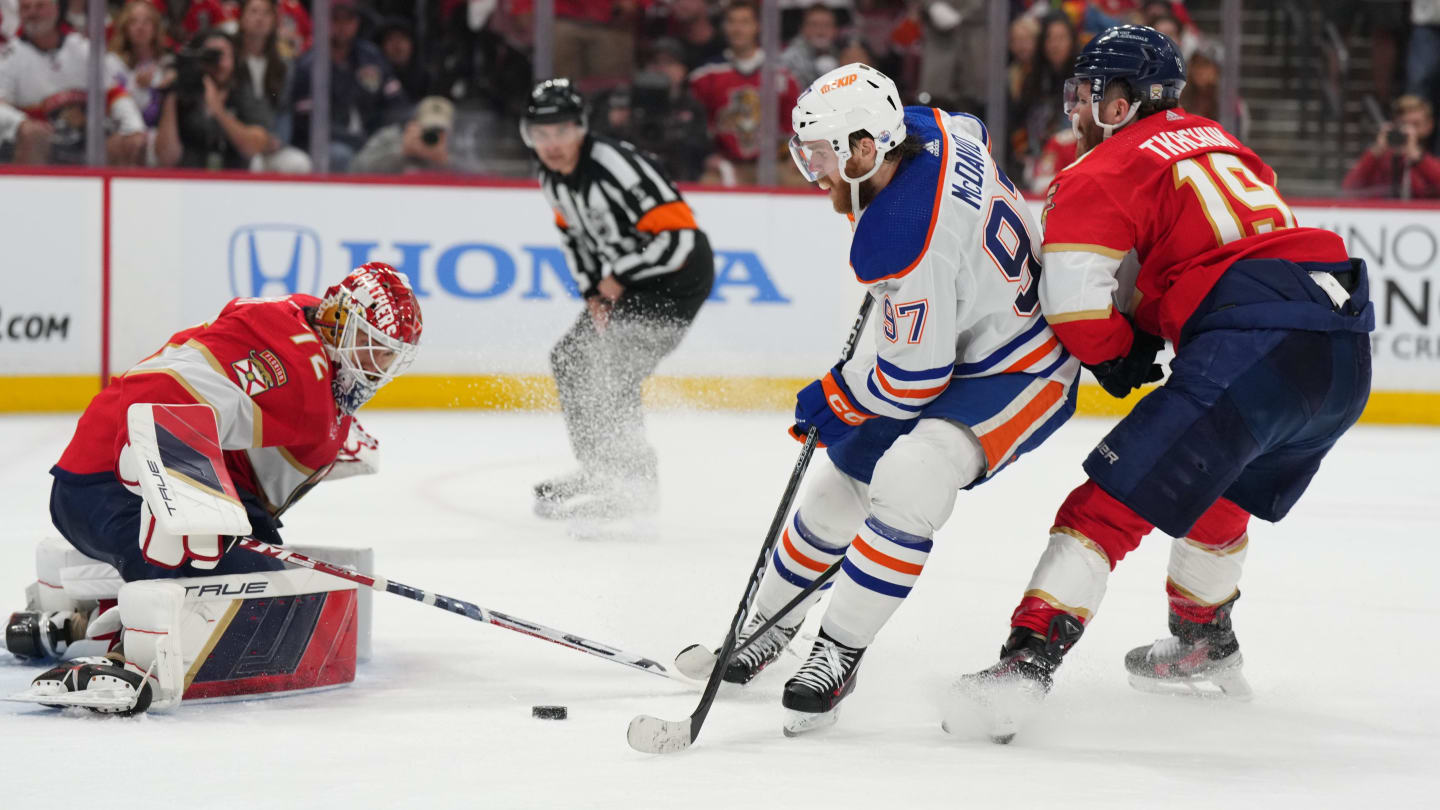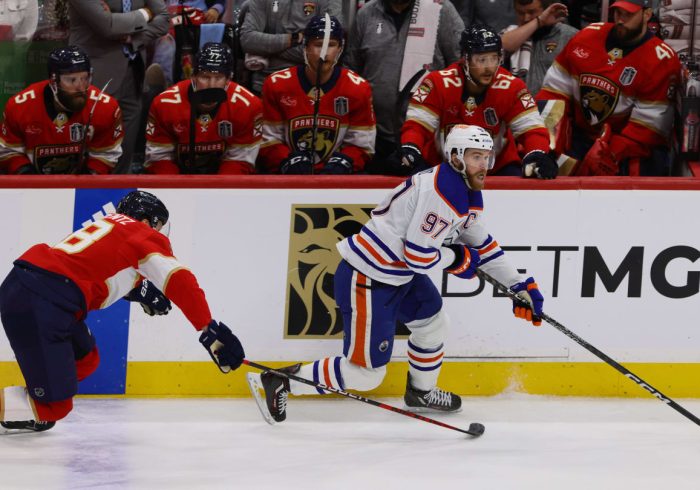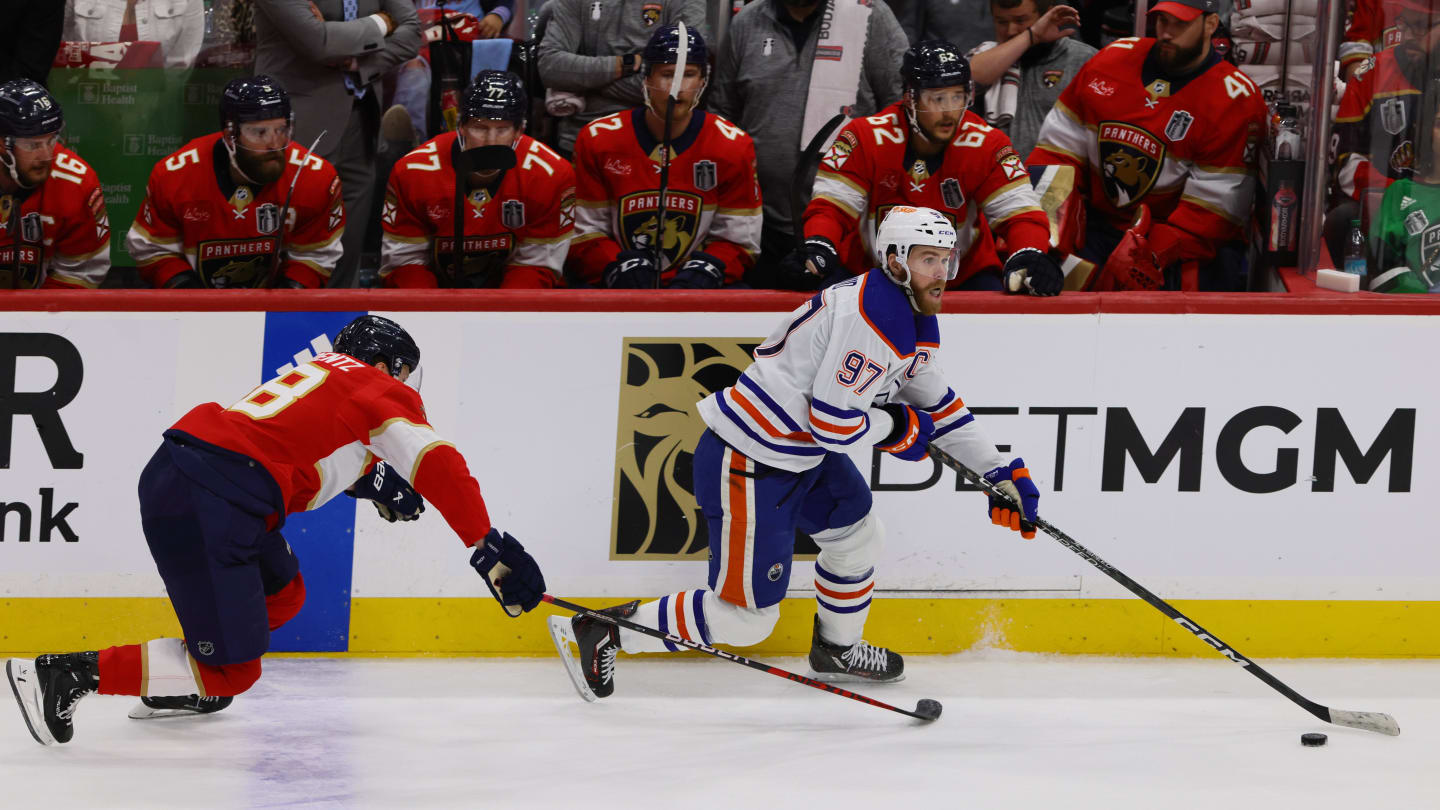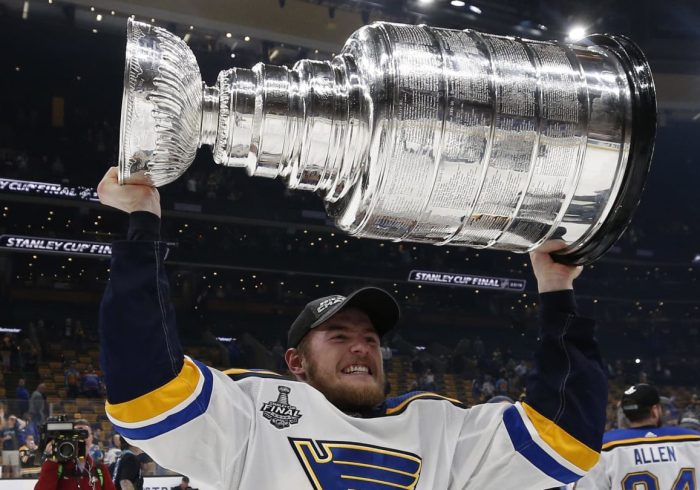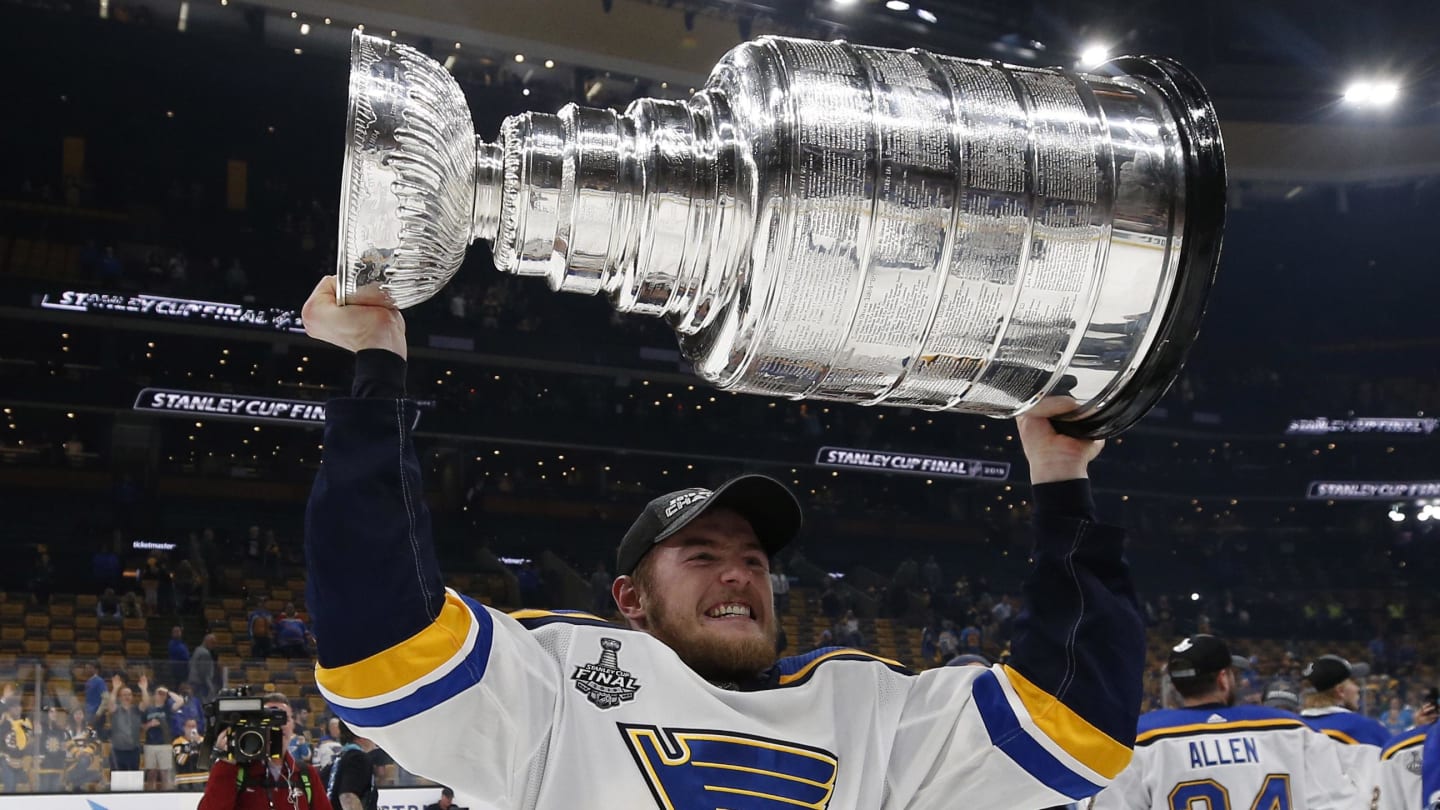The Florida Panthers have proven a major headache for the Edmonton Oilers thus far in the Stanley Cup Final.
First, Panthers goalie Sergei Bobrovsky dominated Game 1 as Florida scored a 3-0 shutout win. Then, a big third period from center Evan Rodrigues paced the Panthers in Game 2.
Ahead of Game 3 Thursday in Edmonton, drastic measures appear to have been placed on the table. Among them: diverting Florida’s team plane from Edmonton, as Canadian air traffic controllers joked about doing Wednesday.
“I’ve got about a two-hour hold for you, or whatever it would take that you’d be low enough on fuel that you’ll have to divert from Edmonton,” a controller said over the radio in audio posted by Andy Slater of WMEN-AM in Royal Palm Beach, Fla. “Mention it to your passengers, maybe they’ll figure it out.”
NEW: Florida Panthers pilots were jokingly told by a Canadian air traffic controller to run low on fuel so the team wouldn’t be able land in Edmonton.
Pilots from other flights join in on the conversation.
(h/t @JOSE97LUIS) pic.twitter.com/IlbauIcVJM
— Andy Slater (@AndySlater) June 13, 2024
That appeared to be followed by authorization for the plane to land in Edmonton “against (the controller’s) better judgment.”
As Slater noted, pilots from other flights proceeded to join in on the conversation.
“Maybe you can divert them,” one noted.
“I threatened them with a hold until they would have to divert,” the original controller said, to laughter over multiple radios.
“The last call you guys need is (NHL commissioner) Gary Bettman calling the (air traffic control),” one replied.
